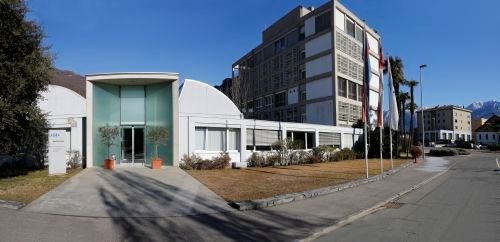Sixty Years of EDM
GF AgieCharmilles has been involved in EDM technology for some 60 years now. Its recent International Technology Show in Losone, Switzerland was a good place to sense the history and current status of this technology.
Share





GF AgieCharmilles hosted its International Technology Show at its main building in Losone, near Locarno on Lake Maggiore in Switzerland
EDM (electrical discharge machining) got its start in 1952 when the Russian scientists, Boris and Natalya Lazarenko, first used electrical energy emitted by an energized electrode to remove metal in a controllable fashion. Two years later, a Swiss company introduced the earliest commercial machine tool using this metal removal process. Six decades later, GF AgieCharmilles (today’s corporate entity rooted in the original Swiss company) is still building die sinking, wire and hole-drilling EDM machines in Switzerland.
In addition to EDM, GF AgieCharmilles provides high-speed/high-efficiency milling and laser texturing technologies, as well as related customer services and support for these technologies. This range of technology is important, because the current state of EDM is best understood in a context where these technology components are combined in an automated, integrated manufacturing solution.
GF AgieCharmilles’ recent International Technology Show in Losone, Switzerland, commemorated the 60-year history and evolution of EDM, from its inception to its culmination as the critical process in advanced mold, die, toolmaking and high precision production. View this slide show to see what this event was all about.
Related Content
-
6 Machine Shop Essentials to Stay Competitive
If you want to streamline production and be competitive in the industry, you will need far more than a standard three-axis CNC mill or two-axis CNC lathe and a few measuring tools.
-
How to Successfully Adopt Five-Axis Machining
While there are many changes to adopt when moving to five-axis, they all compliment the overall goal of better parts through less operations.
-
Lean Approach to Automated Machine Tending Delivers Quicker Paths to Success
Almost any shop can automate at least some of its production, even in low-volume, high-mix applications. The key to getting started is finding the simplest solutions that fit your requirements. It helps to work with an automation partner that understands your needs.

























